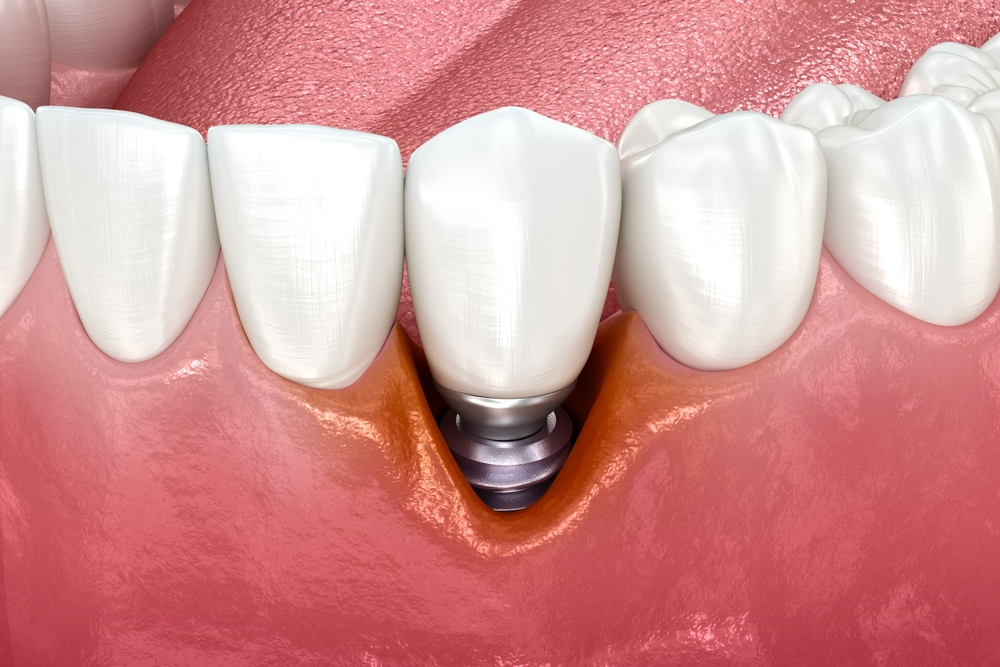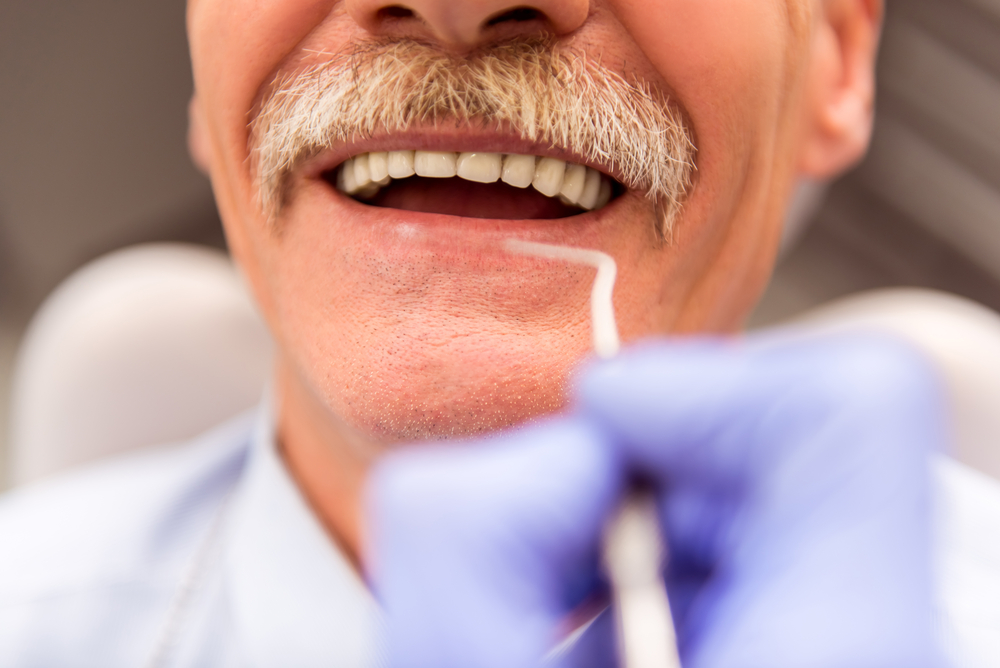Understanding Dental Implant Risks For Implant Success
At Eggleston Dental Care, Dr. Jim Eggleston and our team have helped countless patients achieve stunning smiles throughdental implant treatment. As yourTurlock implant dentist, we’re proud to offer this revolutionary artificial tooth and replacement option that closely replicates natural tooth structure and function. While dental implants boast an impressive success rate of up to 95 percent over the long term, we believe in complete transparency about all aspects of treatment, including potential risks and complications.
Although complications are uncommon for most dental implant patients, being well-informed about them is crucial for making the best decision about your dental health. Suppose you notice anything unusual during your implant treatment or recovery period. In that case, we encourage you to contact ourStanislaus County dental practiceimmediately by dialing 209-226-4963if you’re a new patient or 209-634-5871if you’re current.
Key Dental Implant Risks
Infection
Surgical procedures always carry some risk of infection, and dental implant surgery is no exception. Infection can develop in the dental implant site, surrounding gum tissue, or other teeth and supporting bone structures. Warning signs include persistent discomfort or pain, noticeable swelling, unusual redness, or the presence of pus around the implant site. At Eggleston Dental Care, we implement strict sterilization protocols and provide detailed aftercare instructions to minimize infection risks.
Dental Implant Failure
While relatively rare, implant failurecan occur when the implant doesn’t properly integrate with the surrounding bone tissue or becomes loose over time. Various factors can contribute to failure, including improper placement technique, inadequate oral hygiene maintenance, or insufficient bone density in the jaw. Dr. Eggleston’s extensive experience in implant dentistry helps minimize these risks through careful planning and precise placement.
Nerve or Tissue Damage
During dental implant procedures, there’s a potential risk of damage to surrounding nerves or soft tissue. This can manifest as ongoing pain, numbness, or tingling sensations in the lips, tongue, or chin area. To prevent such complications, Dr. Eggleston uses advanced imaging technology to carefully plan each implant’s placement, ensuring optimal positioning while avoiding crucial nerve pathways.
Sinus Complications
For upper jaw implants, particularly in the back of the mouth, there’s a risk of the implant extending into the sinus cavity. This can potentially lead to sinus infectionsor chronic sinusitis. Our team conducts thorough evaluations of your oral anatomy, including detailed imaging, to ensure proper implant placement and prevent sinus problems.
Allergic Reactions
Though extremely rare, some patients may experience allergic reactions to the implant materials, typically titanium or other metals used in the procedure. Symptoms can range from mild itching and rashes to more severe allergic responses. We carefully review your medical history and can perform metal sensitivity testing if necessary.
Risk Factors That May Affect Your Implant Success
Several factors can increase the likelihood of experiencing complications:
- Poor Oral Health: Existing dental issues like periodontal disease or decay can compromise dental implant success.
- Insufficient Bone Density: Adequate jaw bone structure is crucial for dental implant stability.
- Smoking Habits: Tobacco use significantly impacts healing and can increase dental implant failure rates.
- Underlying Medical Conditions: Conditions like diabetes, autoimmune disorders, or cancer may affect healing after dental implant surgery.
- Certain Medications: Some medications, particularly blood thinners, can complicate dental implant surgery and recovery.
- Age-Related Factors: While not a contraindication, advanced age may influence healing capacity after dental implant surgery.
Common Dental Implant Complications
Even after successful dental implant surgery, certain complications may develop:
- Implant Movement: The dental implant may become loose or shift position over time.
- Peri-implantitis: A serious form of gum disease specific to dental implants that can lead to bone loss.
- Structural Issues: Dental implant components may fracture or wear down over time, greatly increasing the risk of complications as the implants age.
Minimizing Your Risk of Complications
At Eggleston Dental Care, we take several steps to ensure optimal implant outcomes:
- Choose Experience: Dr. Eggleston brings extensive experience in implant dentistry to every procedure.
- Follow Proper Hygiene: After dental implant procedures, maintain excellent oral care through regular brushing, flossing, and professional cleanings.
- Adhere to Instructions: Carefully follow allpost-operative care guidelinesprovided by our team to ensure your dental implants stay clean and strong.
- Lifestyle Changes: Consider quitting smoking and maintaining good overall health, not just to protect your dental implants, but your natural teeth as well.
Frequently Asked Questions
What should I do if I experience complications with my dental implant?
Based on the examination findings, we’ll develop a comprehensive treatment plan that may include additional procedures, medications, or in some cases, implant replacement to resolve the issue.
How can I best prevent infection after getting dental implants?
Additionally, attending all scheduled follow-up appointments allows Dr. Eggleston to monitor your healing progress and address any potential concerns before they develop into serious complications.
Can my body reject a dental implant?
Our team at Eggleston Dental Care conducts thorough pre-treatment evaluations to identify any potential risk factors that could affect implant success, and we carefully monitor the integration process throughout your recovery period.
Who makes a good candidate for dental implants?
What typically causes dental implant failure?
At Eggleston Dental Care, we minimize these risks through careful treatment planning, precise surgical execution, and close monitoring during the healing phase.

